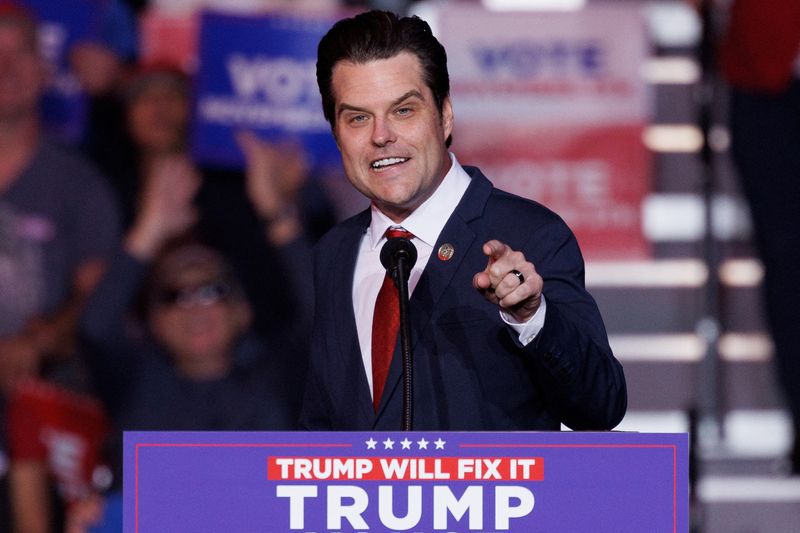In a recent development regarding the nomination of Matt Gaetz for the position of Attorney General by President-elect Donald Trump, the congressman is facing increasing scrutiny from his Republican colleagues. This scrutiny centers on an unreleased report by the House of Representatives Ethics Committee, which investigates allegations of sexual misconduct against Gaetz, specifically involving illicit drug use and inappropriate conduct. Senator John Cornyn emphasized the importance of transparency by advocating for Senators to gain access to the Ethics Committee report before considering Gaetz’s confirmation. He asserted that the Senate should have unrestricted access to any pertinent materials, expressing a definitive interest in reviewing the report when questioned directly about it.
The backdrop of Gaetz’s nomination is complicated by his recent resignation from the House of Representatives, which is likely to terminate the ongoing Ethics Committee investigation. Despite the serious accusations, Gaetz has consistently maintained his innocence regarding all allegations. Notably, the committee had been set to release its findings shortly, with insiders indicating that a meeting was scheduled to take place shortly after. Concurrently, a lawyer representing an alleged victim has called on the Ethics Committee to release their report promptly, insisting that the truth should come to light given the circumstances surrounding the case, including her status as a minor at the time of the alleged misconduct.
Cornyn, who holds a significant position as the No. 2 Republican on the Senate Judiciary Committee responsible for confirming Gaetz, acknowledged the multitude of questions clouding Gaetz’s potential as Attorney General. His statements reflect a broader division among Republicans, with opinions on Gaetz vastly differing. Some members express skepticism about his qualification in leading a crucial government department, particularly considering his controversial tenure in the House, during which he frequently clashed with fellow Republicans. This environment poses significant hurdles for Gaetz’s confirmation, as he is viewed unfavorably by many of his former colleagues.
While skepticism persists, there are also Republicans inclined to support Trump’s nomination of Gaetz. Incoming Republican Bernie Moreno pointed to the Electoral mandate for Trump, arguing that the President should be permitted to assemble a team that aligns with his political vision and program. This assertion underscores the diverging viewpoints within the GOP, as the party navigates the implications of Trump’s nominated candidates and their varying levels of acceptance within the legislative body. Trump’s unusual approach to nominations has sparked ongoing discussions about the potential need to sidestep traditional Senate confirmations in favor of immediate appointments.
Matt Gaetz’s controversial history complicates his nomination further. Known for polarizing statements and a combative stance toward Republican leadership, his candidacy raises questions about his fitness to oversee the Department of Justice. Observers note that Gaetz’s previous comments advocating for the abolition of the FBI signal a fundamental departure from traditional law enforcement approaches. Such proposals, coupled with a background devoid of legal and prosecutorial experience, amplify concerns regarding his competency to oversee key functions of federal law enforcement, especially in an administration poised for drastic changes.
Finally, Trump’s focus on the Justice Department following his departure from office in 2021 further contextualizes Gaetz’s potential role. With recent criminal indictments still looming over Trump, the appointment of an attorney general aligned with his political strategies and ambitions becomes critical to his planned recalibration of federal priorities. As he aims to reshape the Justice Department, Gaetz emerges as a pivotal figure in Trump’s administration, tasked with executing directives including mass deportations, rehabilitation of those arrested during the January 6 riots, and targeting prosecutors from his previous administration. Gaetz’s nomination reflects broader themes of loyalty, governance philosophy, and the political maneuvering inherent in a deeply divided Congress.

